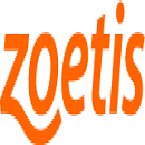Recommended Global Nursing Webinars & Conferences
Europe & UK
Asia Pacific & Middle East
Canada
Nursing Leadership 2026
About Conference
The 57th International Conference on Nursing Leadership and Management, scheduled to take place on May 25–26, 2026 in the historic and vibrant city of Rome, Italy, promises to be an inspiring and transformational gathering of minds from across the globe. This esteemed event will bring together an international audience of nursing leaders, healthcare professionals, administrators, researchers, educators, and policy-makers, all united by a common goal—to elevate the standards of nursing leadership and redefine the future of healthcare management in a rapidly evolving global environment.Themed "Empowering the Future of Healthcare through Leadership and Innovation," the conference aims to highlight the critical role that nursing leadership plays in shaping resilient healthcare systems, improving patient outcomes, and driving positive organizational change. As the healthcare sector continues to confront complex challenges, including workforce shortages, aging populations, digital transformation, and the rising demand for quality care, the need for strong, strategic, and compassionate nursing leadership has never been more vital. The conference will serve as a platform for attendees to explore innovative leadership strategies, evidence-based practices, and policy advancements that can transform healthcare delivery at both local and global levels.
Attendees will have the opportunity to engage in a wide range of sessions, including keynote addresses from world-renowned experts in nursing and health system management, interactive workshops, and panel discussions focusing on leadership development, ethical decision-making, crisis response, and technology integration. The conference will also host oral and poster presentations that showcase the latest research and clinical advancements in the fields of nursing leadership, healthcare quality improvement, organizational culture, team-based care, and patient safety. These sessions will offer valuable insights and inspire practical strategies that participants can implement in their own institutions and communities.One of the unique aspects of this conference is its commitment to fostering collaboration and cross-disciplinary learning. Participants will have the chance to network with peers from diverse backgrounds and regions, build partnerships, and exchange ideas that transcend borders and institutional boundaries. By promoting open dialogue and shared learning, the event seeks to create a global community of nursing leaders who are committed to excellence, innovation, and equity in healthcare delivery.
Sessions and Tracks
Empowering nurse leaders is a vital component of advancing healthcare systems and improving patient outcomes. In today’s rapidly evolving medical landscape, nurses are no longer confined to traditional bedside roles; instead, they are emerging as key decision-makers, innovators, and advocates within their organizations. Empowerment in nursing leadership involves equipping nurses with the authority, confidence, resources, and support necessary to influence meaningful change in both clinical and administrative settings. It fosters a culture where nurses feel valued, trusted, and capable of taking initiative—whether that means implementing evidence-based practices, leading interdisciplinary teams, or advocating for policy reform. At the heart of empowerment lies professional development. Offering access to leadership training, educational advancement, mentorship programs, and opportunities for skill enhancement plays a fundamental role in preparing nurses to take on leadership roles with competence and confidence. Empowered nurse leaders possess strong critical thinking, communication, and decision-making abilities. Moreover, empowered nurse leaders are instrumental in shaping healthcare policy. They bring frontline experience and practical insights into discussions that affect healthcare delivery, workforce planning, and patient advocacy. When given a voice in policy-making and strategic planning, nurses can drive reforms that lead to safer, more efficient, and patient-centered systems.
Crisis-ready leadership is an essential quality in today’s complex and unpredictable healthcare environment. Nurses, often positioned at the front lines of care, face an increasing number of crises ranging from global pandemics and natural disasters to internal hospital emergencies and staffing shortages. In such high-pressure situations, strong and prepared nursing leadership becomes the cornerstone of an effective response. Crisis-ready nurse leaders are those who possess the foresight, agility, and resilience to make timely decisions, maintain calm amidst chaos, and coordinate teams with clarity and confidence under stressful conditions. Their ability to guide others through uncertainty while maintaining high standards of patient care is what defines successful leadership during critical events.Preparedness begins with planning. Effective nurse leaders invest time in understanding potential risks, developing emergency protocols, and ensuring their teams are trained in crisis response. They engage in simulation exercises, participate in interdisciplinary emergency planning, and build collaborative networks across departments to ensure a rapid and unified response.
Future of Nursing Leadership centers on agile, values?driven leaders who can unite clinical excellence with digital fluency, system thinking, and a relentless focus on equity and outcomes. As healthcare becomes more decentralized and data?rich, nurse leaders will steward the safe adoption of AI, remote monitoring, and predictive analytics while safeguarding privacy, combating algorithmic bias, and ensuring technology augments—not replaces—compassionate care. They will design flexible care models that blend virtual and in?person services, integrate behavioral health, and extend reach into communities through partnerships with public health, social services, and patient advocates. Workforce sustainability will be paramount: the next generation of leaders will normalize psychological safety, shared governance, and workload redesign; invest in well?being and career mobility; and build inclusive pipelines that elevate diverse voices, internationally educated nurses, and underrepresented groups into decision?making roles. Financial acumen will expand beyond budgeting to value?based care, cost?quality trade?offs, and return on health metrics that capture patient experience, equity, and staff thriving. Education will shift toward micro?credentialing and lifelong learning in informatics, quality improvement, change management, and policy advocacy, supported by mentorship and sponsorship cultures that accelerate advancement.
Mentorship in nursing is a foundational element in developing competent, confident, and compassionate nursing professionals. It plays a critical role in bridging the gap between academic preparation and real-world clinical practice, offering support, guidance, and professional growth opportunities for both new graduates and experienced nurses transitioning into leadership roles. At its core, mentorship involves a dynamic and reciprocal relationship between a mentor—typically a seasoned nurse with leadership or specialized clinical experience—and a mentee who seeks to expand their skills, knowledge, and career path. This relationship fosters learning, builds resilience, enhances job satisfaction, and promotes long-term retention in the nursing workforce.Effective mentorship is not limited to technical skill development; it encompasses emotional support, career coaching, and the transfer of critical thinking and leadership skills. Mentors act as role models, demonstrating professionalism, ethical conduct, and effective communication. They help mentees navigate complex healthcare environments, offering insights on handling challenging situations, building interprofessional relationships, and managing time and priorities. This guidance is especially important in high-stress settings where novice nurses may experience anxiety, self-doubt, or burnout. Having a mentor can significantly improve confidence and reduce the risk of early career attrition.
Innovative leadership models in nursing are transforming how healthcare systems operate, prioritize patient outcomes, and support professional growth within the nursing workforce. As the challenges in healthcare become more complex—ranging from workforce shortages to digital transformation and health equity—traditional hierarchical leadership models often fall short in meeting these dynamic needs. Innovative leadership approaches focus on flexibility, inclusivity, shared decision-making, and continuous learning. These models empower nurses to lead from every level, promoting a culture of collaboration, creativity, and accountability across healthcare organizations.One of the most prominent models is transformational leadership, which encourages nurse leaders to inspire and motivate their teams through a shared vision, trust, and a commitment to innovation. These leaders are change agents who foster a positive environment, support staff development, and embrace new ideas. By encouraging autonomy and professional growth, transformational leaders help teams adapt to change and continuously improve clinical practices. Servant leadership is another impactful model, where the leader’s primary goal is to serve others. In this approach, nurse leaders prioritize the needs of their teams and patients, fostering a supportive and empathetic work culture.
Women in nursing leadership represent a powerful force for transformation, equity, and progress in healthcare. As the nursing profession is predominantly female, one might expect women to hold an equal share of executive and decision-making roles; however, the reality still reflects underrepresentation at the highest levels of leadership, including boardrooms, policymaking, and healthcare administration. Empowering more women to lead in nursing is not just a matter of equity—it is essential for innovation, organizational performance, and the advancement of patient-centered care.Women bring unique strengths to leadership, including emotional intelligence, collaborative decision-making, and a holistic approach to managing teams and patient outcomes. These strengths are critical in today’s complex healthcare environment, where adaptive thinking, compassion, and resilience are increasingly valued. Women nurse leaders often excel in fostering inclusive, team-oriented environments that support professional development and interdisciplinary collaboration. Their approach tends to focus on mentorship, empowerment, and well-being—priorities that are vital for both staff retention and high-quality care delivery.Despite these attributes, many women still face systemic barriers that limit their progression into top-tier roles.
Digital tools for nurse managers are transforming the way nursing leadership operates by enhancing efficiency, improving patient care coordination, and optimizing workforce management. As healthcare systems increasingly embrace digital transformation, nurse managers are expected to adapt to new technologies that support data-driven decision-making, streamline administrative tasks, and promote quality improvement. From electronic health records (EHRs) and scheduling software to predictive analytics and mobile communication platforms, these tools are becoming essential assets in the day-to-day responsibilities of nurse leaders.One of the most fundamental digital tools in healthcare today is the electronic health record. EHRs allow nurse managers to access and analyze patient data in real time, track clinical outcomes, monitor care plans, and ensure compliance with safety standards and regulatory requirements. By leveraging EHR dashboards, managers can identify trends, monitor performance metrics, and intervene early in care processes to prevent complications and reduce readmissions. This data-driven approach enables proactive leadership that aligns with organizational goals and enhances patient outcomes.Staff scheduling and workforce management software is another key area where digital tools provide immense value.
Team building strategies are essential for fostering a cohesive, motivated, and high-performing nursing workforce. In healthcare settings—where collaboration, trust, and clear communication directly impact patient outcomes—effective team building is not just a leadership responsibility but a strategic necessity. Nurse leaders who prioritize team development create environments where staff feel valued, supported, and empowered to work together toward shared goals. This, in turn, enhances job satisfaction, reduces turnover, and promotes a culture of excellence in patient care.At the foundation of successful team building is open and transparent communication. Nurse leaders must establish clear lines of communication where team members can freely share ideas, voice concerns, and give or receive feedback. Regular staff meetings, digital collaboration platforms, and open-door policies help promote honest dialogue and prevent misunderstandings. Encouraging respectful listening and inclusive discussions strengthens mutual trust and improves interprofessional collaboration.Another powerful strategy involves clarifying roles and responsibilities. In busy clinical environments, confusion over tasks can lead to inefficiencies and errors. Nurse managers must ensure that each team member understands their scope of practice, individual responsibilities, and how their work fits into the larger objectives of the unit or organization. Clear role definitions prevent overlap and promote accountability, while also encouraging team members to take ownership of their contributions.
Leadership in diverse settings is increasingly important in modern healthcare, where nurse leaders are expected to manage teams, deliver care, and make decisions in environments shaped by cultural, geographic, generational, and professional diversity. Effective nursing leadership in such varied contexts requires cultural competence, adaptability, emotional intelligence, and a strong commitment to equity and inclusion. Whether in urban hospitals, rural clinics, community outreach programs, or global health initiatives, leaders must be equipped to recognize and respond to the unique needs of both the populations they serve and the staff they lead.In multicultural settings, nurse leaders must demonstrate cultural humility and awareness, ensuring that care is respectful, personalized, and free from bias. This involves understanding cultural beliefs, communication styles, and health practices that may influence patient behavior and expectations. Leaders must also advocate for inclusive policies and practices that support equitable care, such as language services, cultural training, and respectful accommodation of spiritual or traditional healing practices. Culturally responsive leadership not only improves patient satisfaction and outcomes but also fosters trust and collaboration within diverse nursing teams.
Budgeting for Nurse Leaders is a critical competency that directly influences the operational efficiency, financial sustainability, and quality of patient care within healthcare organizations. As healthcare systems face increasing financial constraints and demand for cost-effective services, nurse leaders must possess a firm understanding of budgeting principles and practices. Their ability to effectively manage budgets ensures appropriate resource allocation, optimal staffing levels, and the continued delivery of high-quality patient care.Nurse leaders play a pivotal role in the development, implementation, and monitoring of both departmental and organizational budgets. This includes analyzing historical data, forecasting future expenses, and aligning financial planning with strategic goals. A well-prepared nurse leader collaborates with finance departments, administrators, and clinical teams to create realistic budgets that address essential needs—such as staffing, equipment, training, and technology—while remaining within fiscal constraints. Through this process, leaders must also be capable of justifying budget proposals and identifying areas where cost savings can be achieved without compromising patient safety or staff well-being.
Communication for Impact is a cornerstone of effective nursing leadership, shaping how nurse leaders inspire teams, advocate for patients, and drive organizational change. In today’s complex healthcare environment, impactful communication goes beyond the exchange of information—it involves delivering messages with clarity, purpose, empathy, and strategic intent to influence outcomes positively. For nurse leaders, mastering this skill is essential for building trust, fostering collaboration, and ensuring the highest standards of care.At its core, impactful communication begins with clarity and consistency. Nurse leaders must convey expectations, policies, and clinical guidance in a way that is easily understood and actionable for diverse audiences. Whether speaking with frontline staff, executive teams, or patients’ families, their messages must be tailored to the listener’s level of knowledge and concern. This requires the ability to synthesize complex information and deliver it in simple, relatable terms—especially during times of crisis or change, when confusion and anxiety are high.
Resilient Nurse Leadership is an essential framework for sustaining high-quality care and team cohesion in the face of ongoing challenges within today’s healthcare landscape. As nurse leaders navigate increasingly complex environments marked by staffing shortages, high patient acuity, burnout, and unpredictable crises like pandemics or natural disasters, resilience becomes more than a personal trait—it becomes a professional necessity and leadership imperative. Resilient nurse leaders are not only capable of adapting to adversity but are also equipped to lead others through it, maintaining focus, compassion, and excellence under pressure.At its foundation, resilient leadership is about inner strength and emotional regulation. Nurse leaders must cultivate a strong sense of self-awareness and mental fortitude to manage their own stress while supporting others. This means developing coping mechanisms, engaging in self-care, and maintaining perspective, even when under significant strain. By modeling healthy responses to stress, they set a tone that normalizes wellness and empowers their teams to do the same.
Policy Influence and Advocacy are critical components of modern nursing leadership, empowering nurse leaders to extend their impact beyond clinical care and into the realms of health policy, legislation, and systemic reform. In today’s rapidly evolving healthcare environment, nurse leaders have an essential role in shaping policies that directly affect patient care, nursing practice, health equity, and resource allocation. Their frontline insights, combined with their leadership acumen, uniquely position them as powerful advocates for change—locally, nationally, and globally.Nurse leaders involved in policy influence understand that advocacy begins with knowledge. They stay informed about legislative developments, regulatory frameworks, and healthcare reforms that affect nursing and patient outcomes. Equipped with this understanding, they can interpret complex policy issues and translate them into actionable strategies that benefit both their organizations and the communities they serve. By engaging in health policy discussions, nurse leaders bring a much-needed clinical perspective to decisions that often prioritize cost or administrative efficiency over patient-centered care.
Emotional Intelligence (EI) in Nursing Leadership is a vital competency that significantly impacts team performance, patient care, and organizational culture. Defined as the ability to perceive, understand, manage, and influence emotions—both one’s own and those of others—emotional intelligence allows nurse leaders to navigate complex interpersonal dynamics with empathy, clarity, and confidence. In high-stress healthcare environments, where decisions often have life-altering consequences, the capacity to lead with emotional intelligence is not a luxury—it is a necessity.At the heart of emotionally intelligent leadership is self-awareness—the ability to recognize one’s emotional triggers, biases, and strengths. For nurse leaders, this means being in tune with their reactions during critical situations and understanding how their moods and behaviors influence their team. A self-aware leader can model calmness under pressure, helping staff stay focused and composed during emergencies or organizational transitions. Closely tied to self-awareness is self-regulation, or the capacity to control impulsive responses and adapt to changing circumstances. Nurse leaders with high EI maintain professionalism, even in the face of adversity or conflict.
Ethical Leadership in Nursing is a cornerstone of professional practice that guides decision-making, promotes integrity, and ensures compassionate, patient-centered care. Rooted in core values such as honesty, accountability, respect, and justice, ethical nursing leadership upholds the principles of autonomy, beneficence, non-maleficence, and fidelity in both clinical and administrative settings. Nurse leaders who embrace ethical leadership act not only as caregivers and administrators but also as moral compasses for their teams, fostering a culture of trust, transparency, and fairness.At the heart of ethical leadership is the consistent alignment of actions with ethical standards, even under pressure. Nurse leaders often face complex situations where they must balance competing priorities—patient needs, organizational policies, limited resources, and staff well-being. In such scenarios, ethical leaders rely on moral reasoning, critical thinking, and ethical frameworks to make decisions that protect patient rights and promote the common good. This may involve advocating for vulnerable populations, ensuring informed consent, addressing unsafe practices, or challenging unjust systems.
Succession Planning in Nursing Leadership is a strategic approach to identifying, developing, and preparing future nurse leaders to ensure continuity, sustainability, and organizational success. In a rapidly evolving healthcare landscape—marked by workforce shortages, retirements, and increasing complexity—succession planning is no longer optional; it is essential. This proactive process ensures that when key leadership roles become vacant, there are competent, well-prepared individuals ready to step in seamlessly, minimizing disruptions in patient care and team performance.At its core, succession planning involves the early identification of high-potential nurses and the deliberate cultivation of their leadership competencies. This includes mentorship, formal education, leadership training programs, and exposure to real-time decision-making experiences. Nurse leaders play a critical role in recognizing emerging talent within their teams and fostering their professional development through guided career paths. When done effectively, succession planning transforms potential into performance by equipping future leaders with the skills and confidence to lead with clarity and purpose.
Leadership in Rural and Remote Care holds a unique and vital position within the healthcare system. Nurse leaders working in these areas are at the frontline of care delivery in communities that often face significant challenges, including geographic isolation, limited healthcare resources, workforce shortages, and disparities in access to specialized care. Effective leadership in these settings requires not only clinical expertise but also innovation, adaptability, and a deep commitment to serving diverse and underserved populations.Unlike urban healthcare environments, rural and remote care settings often involve a broader scope of practice for nurses and nurse leaders. Leaders must make strategic decisions with limited infrastructure, reduced staff, and fewer specialty services. They frequently juggle multiple roles—clinical, administrative, and community-focused—and must often lead interdisciplinary teams with constrained budgets and resources. This demands a high level of competence in problem-solving, resource management, and prioritization, as well as a strong understanding of the unique needs of rural populations.
Transforming Clinical Practice is a critical focus area in modern healthcare, driven by rapid advancements in medical technology, evolving patient expectations, and the demand for high-quality, value-based care. For nurse leaders, transforming clinical practice means leading initiatives that shift care delivery models, improve patient outcomes, and create more efficient, evidence-based systems of care. It is a dynamic and ongoing process that integrates innovation, collaboration, and continuous quality improvement across all levels of nursing practice.At the heart of this transformation is the move from traditional, reactive care to proactive, patient-centered approaches. Nurse leaders play a key role in fostering a culture that embraces change, promotes accountability, and encourages nurses to think critically and act autonomously. By implementing evidence-based practices, clinical pathways, and outcome-driven protocols, nurse leaders can significantly enhance care quality and consistency, reduce variability, and minimize risks.Technology is a powerful enabler in transforming clinical practice. The integration of electronic health records (EHRs), clinical decision support systems, and telehealth services has revolutionized the way care is delivered and documented.
Workforce Retention Tactics in nursing are essential strategies aimed at maintaining a stable, motivated, and skilled nursing workforce in the face of increasing demand, burnout, and global healthcare challenges. Nurse leaders play a pivotal role in developing and implementing retention tactics that not only reduce turnover but also enhance staff satisfaction, professional development, and organizational loyalty. As healthcare systems become more complex and nurses face mounting pressures, the need for effective, evidence-based retention approaches has never been greater.One of the most effective retention strategies begins with creating a positive workplace culture. Nurse leaders must foster an environment of respect, recognition, and inclusivity, where every nurse feels valued and empowered. Regular acknowledgment of accomplishments, open communication, and transparent leadership contribute to job satisfaction and a sense of belonging. Building trust and fostering psychological safety allows nurses to express concerns, share ideas, and feel supported in their roles.Professional development is another cornerstone of workforce retention. Offering ongoing education, tuition assistance, mentorship, and career advancement opportunities helps nurses envision a future within the organization.
Leadership Awards & Success Stories in nursing serve as powerful motivators and models of excellence, showcasing the dedication, innovation, and impact of nurse leaders in various healthcare settings. These recognitions not only celebrate individual achievements but also elevate the profession by highlighting the transformative role that nursing leadership plays in improving patient outcomes, team morale, and healthcare innovation. Whether awarded at institutional, national, or international levels, these honors reflect the values of vision, advocacy, resilience, and service excellence that define exemplary nursing leadership.Nurse leaders who receive such accolades often demonstrate exceptional ability in managing complex clinical environments, initiating quality improvement projects, or mentoring the next generation of nurses. Their stories reveal how strategic thinking, emotional intelligence, and collaborative practice can overcome significant challenges — from staffing crises and policy reforms to patient safety concerns and technological integration. For example, a nurse executive recognized for transforming a struggling rural hospital into a model of care efficiency not only inspires others but also provides a replicable blueprint for systemic improvement.
Market Analysis
The global market for Nursing Leadership and Management has witnessed significant transformation from 2020 and is projected to continue evolving through 2030. The COVID-19 pandemic served as a catalyst for increased demand for strong nursing leadership, highlighting the need for strategic decision-making, crisis management, and workforce resilience. From 2020 to 2023, healthcare systems worldwide prioritized leadership development in response to staffing shortages, patient safety concerns, and the need for coordinated care delivery. Governments and health organizations began investing more in nurse leadership programs, advanced education, and digital tools for nursing management.
Between 2024 and 2030, the market is expected to expand due to growing recognition of nurse leaders as pivotal agents in healthcare reform, quality improvement, and policy advocacy. The integration of technology into healthcare—such as telemedicine, AI-driven care coordination, and digital health records—further necessitates advanced leadership competencies among nurses. Countries like the U.S., UK, Canada, Australia, and parts of Asia are investing in leadership pathways and succession planning to ensure sustainability in nursing management roles.
Moreover, the global focus on Universal Health Coverage (UHC) and the Sustainable Development Goals (SDGs) has underscored the role of nurse leaders in promoting equitable, efficient, and patient-centered care. The increasing diversity in healthcare settings—rural, urban, and underserved communities—has also driven the need for adaptive and inclusive leadership models. By 2030, the nursing leadership and management market is anticipated to grow both in scope and value, with more educational institutions, healthcare systems, and governmental agencies creating structured leadership tracks, mentoring programs, and competency-based training to shape the future generation of nurse leaders.
Past Conference Report
Nursing Leadership 2025
We are delighted to extend a warm invitation to the 56th International Conference on Nursing Leadership and Management, scheduled for May 12-13, 2025, in London, UK . Organized by Conference Series under its Open Access Initiative, this event aims to contribute significantly to the scientific community.
Theme: Integrating Evidence-Based Practice into Nursing Leadership: Bridging Research and Clinical Excellence
Conference Series hosts over 1000 conferences annually across the USA, Europe, and Asia, with support from over 1000 scientific societies. It also publishes 700+ open access journals with editorial boards comprising more than 100,000 esteemed scientists and researchers.
Nursing Leadership 2025 will emphasize advanced nursing research and its impact on clinical practice and outcomes. The conference will feature oral and poster presentations, educational workshops, and influential plenary sessions. Attendees will gain valuable tools to enhance nursing research education programs, improving their effectiveness in nursing practice.
This conference serves as a collaborative platform for nursing students, faculty, deans, researchers, and leaders to address pressing topics in nursing education and practice.
Past Reports Gallery
To Collaborate Scientific Professionals around the World
Conference Date May 25-26, 2026
For Sponsors & Exhibitors
Speaker Opportunity
Useful Links
Past Conference Report
Supported By
All accepted abstracts will be published in respective Conference Series International Journals.
Abstracts will be provided with Digital Object Identifier by






